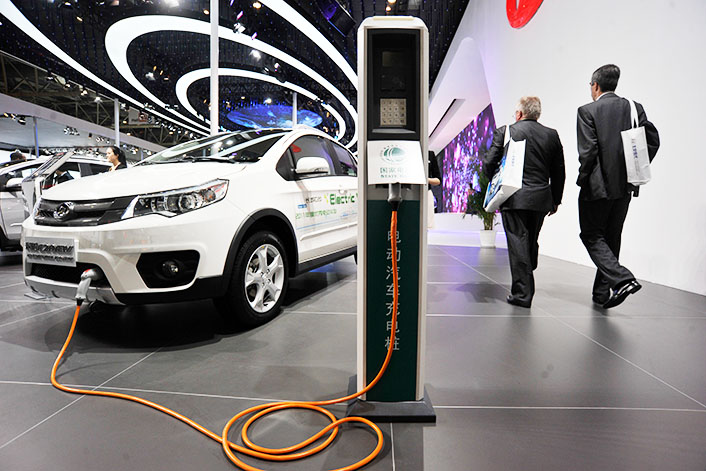China Pulls Plug on Electric Vehicle Fraud

(Beijing) — The Ministry of Industry and Information Technology (MIIT) has punished seven Chinese electric vehicle makers for subsidy cheating.
Nearly 4,500 subsidized electric vehicles produced by the seven companies were found to have less powerful batteries than the firms declared when applying for incentives, according to an MIIT statement published on Saturday.
The seven firms are Zhengzhou Nissan Auto Co. Ltd., SAIC Bus Tangshan Co. Ltd., Chongqing Lifan Passenger Vehicle Co. Ltd., Chongqing Hengtong Bus Co. Ltd., Shanghai Sunwin Bus Co. Ltd., Nanjing Special Auto Manufacturing Co. Ltd., and China Youngman Automobile Group Co. Ltd.
The MIIT has removed the models in question from the list of approved electric vehicles and stopped accepting applications from the seven firms. It has also ordered them to rectify all existing problems within two months, after which they will be reassessed by MIIT.
The move comes amid an ongoing nationwide investigation, which started in January 2016, into new-energy vehicle subsidy fraud — spurred by a government incentive program — that has seen firms collect hundreds of millions of yuan after inflating the number of vehicles they had made.
The investigation was conducted jointly by MIIT, the Ministry of Finance, the Ministry of Science and Technology and the National Development and Reform Commission.
Last September, the Ministry of Finance released a list of five companies fined for fraudulently taking government incentives, involving subsidies of more than 1 billion yuan ($145 million).
But a source from the Ministry of Finance told Caixin at the time that there were more violators beyond the published list, without specifying how many.
Within a month, punishments for another two companies surfaced.
The holding companies of Chongqing Lifan Passenger Vehicle and Chongqing Hengtong Bus, Lifan Industry (Group) Co. Ltd. and Sichuan Western Resources Holding Co. Ltd., both listed on the Shanghai Stock Exchange, declared the MIIT action in stock exchange filings.
Shares of Western Resources dropped by 1.6% to 11.04 yuan on Monday, while Lifan shares rose by 2.04% to 8.99 yuan.
In order to better regulate the industry, at the end of 2016, the government announced a renewed incentive plan that raised the threshold for automakers to receive subsidies. The government plans to phase out subsidies by 2020, the official Xinhua News Agency reported.
Contact reporter Coco Feng (renkefeng@caixin.com)

- PODCAST
- MOST POPULAR






